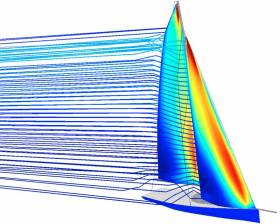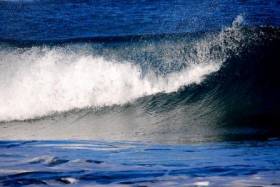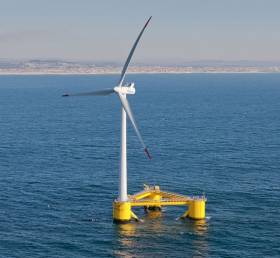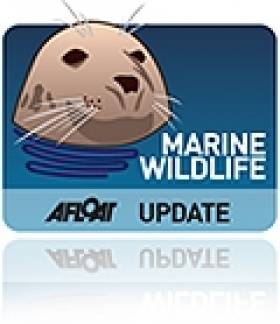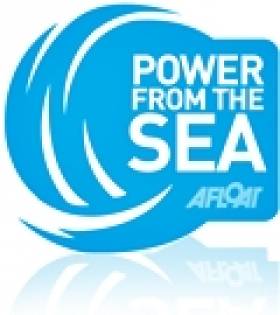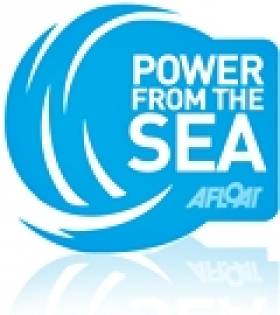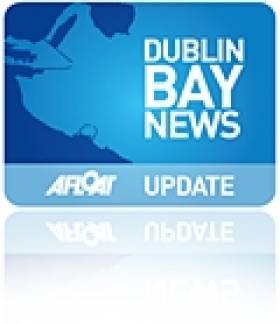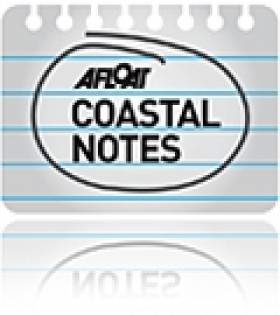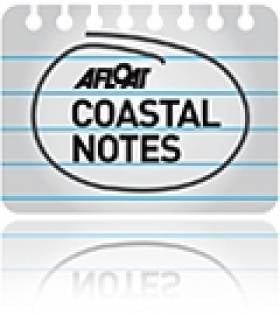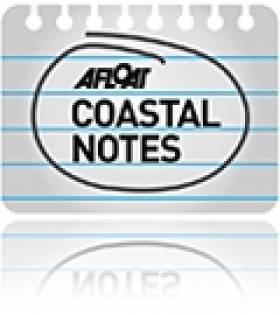Displaying items by tag: wind energy
Sailing Technology Inspires New Cloth Blades For Wind Farms
#SeaPower - Edinburgh-based ACT Blade has designed a textile blade for wind turbines that could increase energy production by nearly 10%.
The company, an offshoot of racing yacht sail specialist AMAR Azure, designed the blade as part of the Offshore Renewable Energy (ORE) Catapult’s Innovation Challenge.
ORE Catapult then led a study that identified the company’s technology could be used to produce a textile blade up to 50% lighter and 30% stiffer than conventional fibreglass equivalents, said ACT Blade’s Sabrina Malpede.
“I didn’t have knowledge of the renewable energy sector and needed to qualify my theory with sector experts,” she added.
“From these insights we were able to create the ACT Blade, the world’s first textile blade, capable of capturing more energy than a fibreglass blade by covering a larger swept area, significantly increasing annual production.”
ACT Blade says the design has the potential to increase energy production by 9.7% and reduce the levelised cost of energy by 8.7%.
ORE Catapult research and innovation project manager Vicky Coy said: “This is just one example of how technology can be adapted from one sector to create something genuinely groundbreaking in another industry.
“There are very few innovations in any field that deliver such a dramatic performance improvement with one fell swoop. This is a tremendous opportunity not just for ACT Blade, but for the UK to establish a new textile blade supply chain for the global marketplace.”
Minister for Communications, Climate Action and Environment, Denis Naughten TD, has signed an energy cooperation declaration with nine other EU counties focussing on the development of cost effective offshore wind & wave renewable energy.
Commenting on the cooperation declaration, Denis Naughten said "Ireland has the best off shore energy potential in Europe but we need to work with our colleagues across the EU to turn this potential into electricity"
"While we are at the leading edge ocean energy research, we can always benefit from closer cooperation with our EU neighbours, not just in ensuring that we use the most cost effective solutions to produce off shore energy but also to get this green electricity onto the European electricity grid".
Speaking from Luxembourg at the official signing ceremony he said "As the new Minister with responsibility for both for energy and climate action, I want to ensure that we do all in our power to achieve our climate change targets in a sustainable cost effective manner in the shortest timeframe possible".
It is also important that we have access to a balanced suite of renewable energy options and I believe that this declaration with EU countries adjoining the North Sea and Irish Sea will help us as a country develop a range of cost effective renewable energy solutions" concluded Denis Naughten
Background:
Minister Naughten was one of 10 signatories to the “Political Declaration on Energy Cooperation between the North Seas Countries.” This voluntary declaration, supported by the European Commission, has a particular focus on renewables and smart grid development. The initiative builds on the North Seas Countries' Offshore Grid Initiative (NSCOGI) that Ireland has been successfully involved in in the past.
The key objective of this North Seas energy cooperation is to enhance coordination and integration of national efforts of renewables deployment in addition to grid planning. This aims to reduce the costs of renewable energy and grid development and remove barriers to investment, which contributes to achieving our climate goals and the EU-wide target of 27% renewable energy by 2030. Moreover, it strengthens our security of supply and supports the EU’s long term competitiveness and energy market integration. The long term goal of the cooperation is to attract private investments in the development of the North Seas as a sustainable and regionally optimised energy system.
The signatories to the Declaration are: Belgium, Denmark, France, Germany, Ireland, Luxembourg, the Netherlands, Norway, Sweden and the UK and the European Commission.
#PowerFromTheSea - The Irish Times reports that the Marine Institute hopes to install wind turbines in Galway Bay for an offshore renewable energy trial.
Permission is being sought for up to three turbines, with a maximum height of 35m above sea level, that would be installed at different times at the current ocean energy test site off Spiddal, along with a prototype offshore power generating station that would cover an area of 37 hectares.
The entire project will open for public consultation on Monday 18 April. The Irish Times has more on the story HERE.
This story was updated to correct the previously reported 60m height of the turbines, which, according to the Marine Institute, was based on a error in the lease application form. The Marine Institute also clarified that the turbines would not be installed concurrently.
Northern Ireland Marine Bill Discussed at Special Workshop
#MARINE WILDLIFE - A meeting of the Northern Ireland Marine Task Force (NIMTF) last week brought together interests from across the spectrum to discuss the new Marine Bill and ensure it will "deliver for all sea users".
The workshop at Castle Espie on Strangford Lough last Thursday 22 March saw politicians sit down with environmentalists, fishermen and wind farm developers, and engage with those responsible for drafting the proposed legislation.
According to a statement from the Ulster Wildlife Trust, which is a member of the NIMTF, the bill "provides for the creation of a network of marine protected areas to protect marine wildlife" as well as a roadmap for a more joined-up approach to the North's marine resources.
NIMTF spokesperson Ricky Devlin said: "We now need to ensure that [the bill] addresses the full range of environmental, recreational and commercial interests such as fishing, diving, electricity generation and aquaculture."
A full report of the meeting will be available shortly from www.nimtf.org
UCC Wave Energy Trials Central to New Maritime Cluster
#POWER FROM THE SEA - A €9 million Europe-wide wave energy trial programme is one of the key elements of a new Government programme designed to transform Ireland as a maritime nation.
According to The Irish Times, University College Cork's Hydraulics and Maritime Research Centre will run testing of wave energy, tidal energy and offshore wind energy devices across a network of sites in 12 European countries participating in the new marine renewables infrastructure network Marinet.
Irish test sites in the network include the national ocean test facility in Cork and centres operated by the Sustainable Energy Authority of Ireland (SEAI) at Galway Bay and Belmullet.
The UCC centre also forms part of the new Irish Maritime and Energy Resource Cluster (IMERC), launched last Friday by Taoiseach Enda Kenny.
The cluster comprises UCC, the Irish Naval Service, Cork Institute of Technology and the National Maritime College of Ireland with the initial aim of creating 70 new research jobs by 2014 in the areas of wave energy, green shipping and sustainability of ocean resources.
IMERC director Dr Val Cummins said: “The aim of IMERC is to promote Ireland as a world-renowned research and development location that will unlock Ireland’s maritime and energy potential."
The Irish Times has more on the story HERE.
- Irish Naval Service
- maritime
- Cork
- Galway Bay
- Belmullet
- National Maritime College of Ireland
- wind energy
- UCC
- Cork Institute of Technology
- renewable energy
- wave energy
- sustainable energy
- tidal energy
- network
- testing
- Sustainable Energy Authority of Ireland
- Taoiseach Enda Kenny
- SEAI
- Hydraulics and Maritime Research Centre
- Marinet
- devices
- Irish Maritime and Energy Resource Cluster
- IMERC
- Dr Val Cummins
Ireland Risks Missing Out On Renewable Energy Benefits
Ireland must do more to develop its port and shipping services or risk missing out on the benefits of the growning renewable energy sector.
That was the message from a new analysis compiled by the Sustainable Energy Authority of Ireland and the Irish Maritime Development Office, as reported by Renewable Energy Magazine.
The current lack of supply services and equipment for renewables in Irish ports could threaten the country's promise in the fields of offshore wind, tidal and wave energy, the report states.
It is estimated that the total value of such renewable energy sectors could be as much as €16 billion.
The east coast has been identified as the best location for offshore wind and tidal projects, while the south and west coasts were best for wave power and wind farms.
“We now need to look at the investment in infrastructure required if we are to properly capitalise on the current opportunities in this area," said the report.
Renewable Energy Magazine has more on the story HERE.
Dublin Array Developer Applies for Foreshore Lease
A foreshore lease application has been lodged for a series of offshore wind farms in Dublin Bay.
The Dublin Array, to be situated on the Bray and Kish Banks some 10km from the coast, would consist of 145 turbines, each 160m high, operated by Saorgus Energy Ltd.
The project has been criticised by the Coastal Concern Alliance due to its approval in contravention of an EU directive that requires a strategic environmental assessment.
Further details are available at www.saorgus.com and www.coastalconcern.ie.
Renewable Energy 'Milestone' for Northern Ireland
The UK's Crown Estate has announced a consultation on making areas of Northern Ireland's sea bed available for renewable energy projects, Business & Leadership reports.
The consultation process will inflence leasing rounds for offshore wind and tidal energy projects in September this year, with the potential for development rights to be awarded as early as spring 2012.
Junior Minister Robin Newton commented at yesterday's launch event in Belfast: “Today marks a major milestone in the development of marine renewable energy in Northern Ireland waters."
Energy Minister Arlene Foster added that Belfast harbour "is well placed to become a major offshore logistics centre in the rapidly expanding offshore wind sector".
Business & Leadership has more on the story HERE.
Wind Farm 'Ready to Go Tomorrow'
The backers of a proposed new wind farm in the Irish Sea near Wicklow have said the project would be ready to go "tomorrow" if given permission to connect to the national grid.
Planning permission has already been obtained by Fred Olsen Renewables for the €3 billion Codling wind park project, which it set to consist of 220 turbines with a potential generating capacity of 1,100 megawatts.
Graham Cooper of Fred Olden Renewables told The Irish Times that the project is ready to start, but the Commission for Energy Regulation not yet given consent for connection to the Irish national grid.
The Irish Times has more on the story HERE.
Ireland Missing Out on Wind Energy Boost
Ireland's failure to exploit our offshore wind resources means we are losing out on serious economic and employment growth, according to a wind energy lobby group.
Michael McBennett, president of the National Offshore Wind Association of Ireland (NOW Ireland), spoke during a trade mission to Germany, which the group says has "been particularly active in developing programmes to support the development of offshore wind".
"Governments around Europe have recognised the opportunity that this sector offers," said McBennett.
The NOW Ireland president highlighted the "significant direct investment" that has resulted in the German state of Lower Saxony following its designation as an offshore wind "centre of excellence".
"We should do the same in Arklow, Dublin, Bremore, or Killybegs," he said.



























